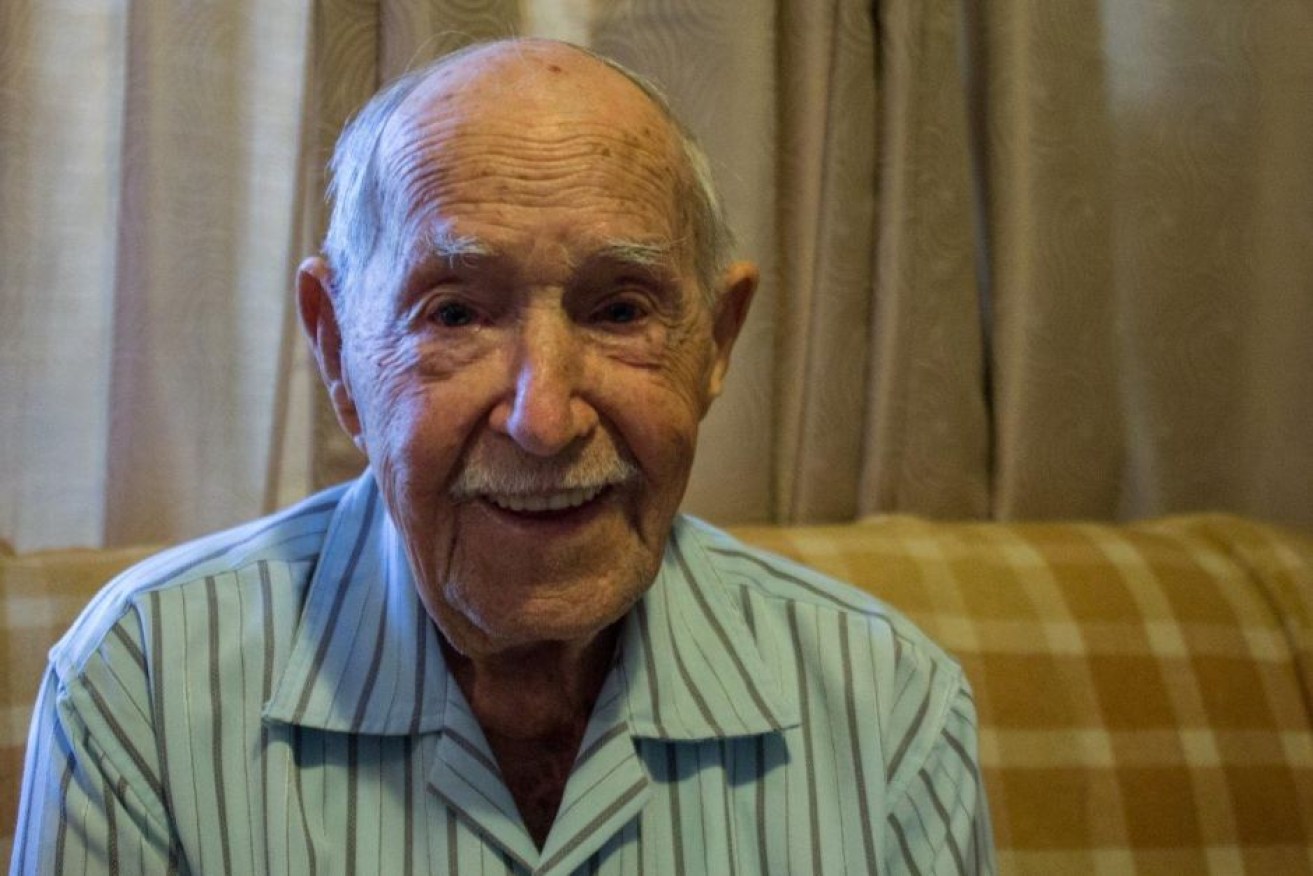Decorated WWII vet ‘Snow’ Fairclough dies in Perth

Mr Fairclough was a prisoner of war on the infamous Thai-Burma railway. Photo: ABC/Emma Wynne
World War II digger Milton Thomas ‘Snow’ Fairclough, a survivor of the notorious Burma-Thailand railway whose stolen war medals were returned this year, has died in Perth.
The Returned Services League announced the decorated 96-year-old passed away on Saturday.
Born in Perth on August 28, 1920, he served in Burma, Palestine, Syria, Lebanon and Java during WWII.

Milton Fairclough served in Beirut in 194. Photo: Supplied/Milton Fairclough
He endured three-and-a-half years of sickness, hunger and beatings in forced labour as a Japanese prisoner of war on the Burma-Thailand ‘death railway’ that killed more than 2,800 Australians.
Mr Fairclough’s nine war medals were stolen in September 2015, but after widespread publicity of the theft, they were anonymously returned a few days before Anzac Day this year.
“I’ve got a lot of faith in humanity now,” he said at the time.
“I had tears running down my cheeks. Bloody nearly 96-year-old bloke crying. It was such a feeling.”
RSL Western Australia president Peter Aspinall said Mr Fairclough was irreplaceable.
“Snow was one of the few surviving members of the 2/3 Machine Gun Battalion and died within a week of the passing of another valued member in Eric Roediger,” Mr Aspinall said.
“These men served their country and community and survived deprivations during the Second World War that younger generations would today find difficult to believe.”
He helped surgeon Sir Edward ‘Weary’ Dunlop caring for sick prisoners near the infamous Hellfire Pass on the Thai-Burma railway.
The RSL said during that period, he was “renowned for his mateship, resourcefulness and his compassion for his fellow prisoners”.

Milton Fairclough endured sickness, hunger and beatings in forced labour on the Burma–Thailand death railway that killed more than 2,800 Australians. Photo: Supplied/The Greatest Generations Foundation
“During captivity he spent countless hours foraging for little extras for his mates who were ill, on light rations and unpaid.
“He would stay with men in their dying hours maintaining the tradition of ‘nobody must die alone’.
“Even when the dreaded cholera epidemic raged he still nursed cholera patients without any regard for his own health.”
– ABC








